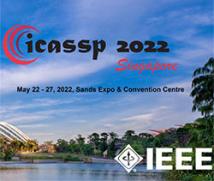
ICASSP 2022 - IEEE International Conference on Acoustics, Speech and Signal Processing is the world’s largest and most comprehensive technical conference focused on signal processing and its applications. The ICASSP 2022 conference will feature world-class presentations by internationally renowned speakers, cutting-edge session topics and provide a fantastic opportunity to network with like-minded professionals from around the world. Visit the website.
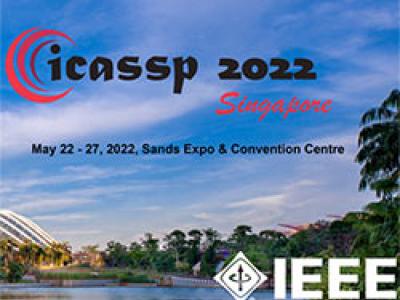
- Read more about A MULTI-RESOLUTION LOW-RANK TENSOR DECOMPOSITION
- Log in to post comments
The (efficient and parsimonious) decomposition of higher-order tensors is a fundamental problem with numerous applications in a variety of fields. Several methods have been proposed in the literature to that end, with the Tucker and PARAFAC decompositions being the most prominent ones. Inspired by the latter, in this work we propose a multi-resolution low-rank tensor decomposition to describe (approximate) a tensor in a hierarchical fashion.
- Categories:
 36 Views
36 Views
- Read more about End-to-end Keyword Spotting using Neural Architecture Search and Quantization
- Log in to post comments
This paper introduces neural architecture search (NAS) for the automatic discovery of end-to-end keyword spotting (KWS) models in limited resource environments. We employ a differentiable NAS approach to optimize the structure of convolutional neural networks (CNNs) operating on raw audio waveforms. After a suitable KWS model is found with NAS, we conduct quantization of weights and activations to reduce the memory footprint. We conduct extensive experiments on the Google speech commands dataset.
icassp_2022_poster.pdf
- Categories:
 12 Views
12 Views
In this paper, we develop a framework to achieve a desirable trade-off between fairness, inference accuracy and privacy protection in the inference as service scenario. Instead of sending raw data to the cloud, we conduct a random mapping of the data, which will increase privacy protection and mitigate bias but reduce inference accuracy. To properly address the trade-off, we formulate an optimization problem to find the optimal transformation map. As the problem is nonconvex in general, we develop an iterative algorithm to find the desired map.
poster_V1.pdf
- Categories:
 19 Views
19 Views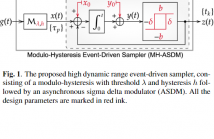
- Read more about MODULO EVENT-DRIVEN SAMPLING: SYSTEM IDENTIFICATION AND HARDWARE EXPERIMENTS
- Log in to post comments
In event-driven sampling (EDS) the signal is represented in terms of a series of spikes at non-uniform time locations. Owing to the limited dynamic range (DR), just like how conventional analog-to-digital converters (ADC) suffer from signal saturation, in EDS a similar manifestation is observed. Namely, when the input exceeds a threshold, no output spikes are generated. Recently, the Unlimited Sensing Framework (USF) was presented to overcome the DR limitation. In USF, the key idea is to fold the signal using a modulo non-linearity so that its DR is fixed.
- Categories:
 25 Views
25 Views
- Read more about EXPLAINING DEEP LEARNING MODELS FOR SPOOFING AND DEEPFAKE DETECTION WITH SHAPLEY ADDITIVE EXPLANATIONS
- Log in to post comments
ICASSP - poster.pdf
- Categories:
 31 Views
31 Views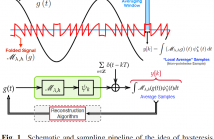
- Read more about Unlimited Sampling with Local Averages
- Log in to post comments
Analog-to-digital converters (ADCs) are known to suffer from saturation and clipping for inputs exceeding their dynamic range (DR). Recently, the Unlimited Sampling approach addressed this problem by inserting a modulo non-linearity between the input and the ADC. Moreover, a new model called modulo-hysteresis was introduced to enable the recovery of different classes of inputs from noisy observations. ADCs are typically assumed to acquire the instantaneous input amplitude via an inner product with a Dirac delta function.
- Categories:
 44 Views
44 Views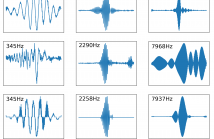
- Read more about A study of the robustness of raw waveform based speaker embeddings under mismatched conditions
- Log in to post comments
In this paper, we conduct a cross-dataset study on parametric and non-parametric raw-waveform based speaker embeddings through speaker verification experiments. In general, we observe a more significant performance degradation of these raw-waveform systems compared to spectral based systems. We then propose two strategies to improve the performance of raw-waveform based systems on cross-dataset tests. The first strategy is to change the real-valued filters into analytic filters to ensure shift-invariance.
- Categories:
 26 Views
26 Views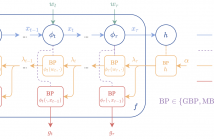
- Read more about Differentiable Programming a la Moreau
- Log in to post comments
The notion of a Moreau envelope is central to the analysis of first-order optimization algorithms for machine learning and signal processing. We define a compositional calculus adapted to Moreau envelopes and show how to apply it to deep networks, and, more broadly, to learning systems equipped with automatic differentiation and implemented in the spirit of differentiable programming.
- Categories:
 7 Views
7 Views
- Categories:
 14 Views
14 Views
- Read more about ADAPTIVE WIRELESS POWER ALLOCATION WITH GRAPH NEURAL NETWORKS
- Log in to post comments
- Categories:
 25 Views
25 Views